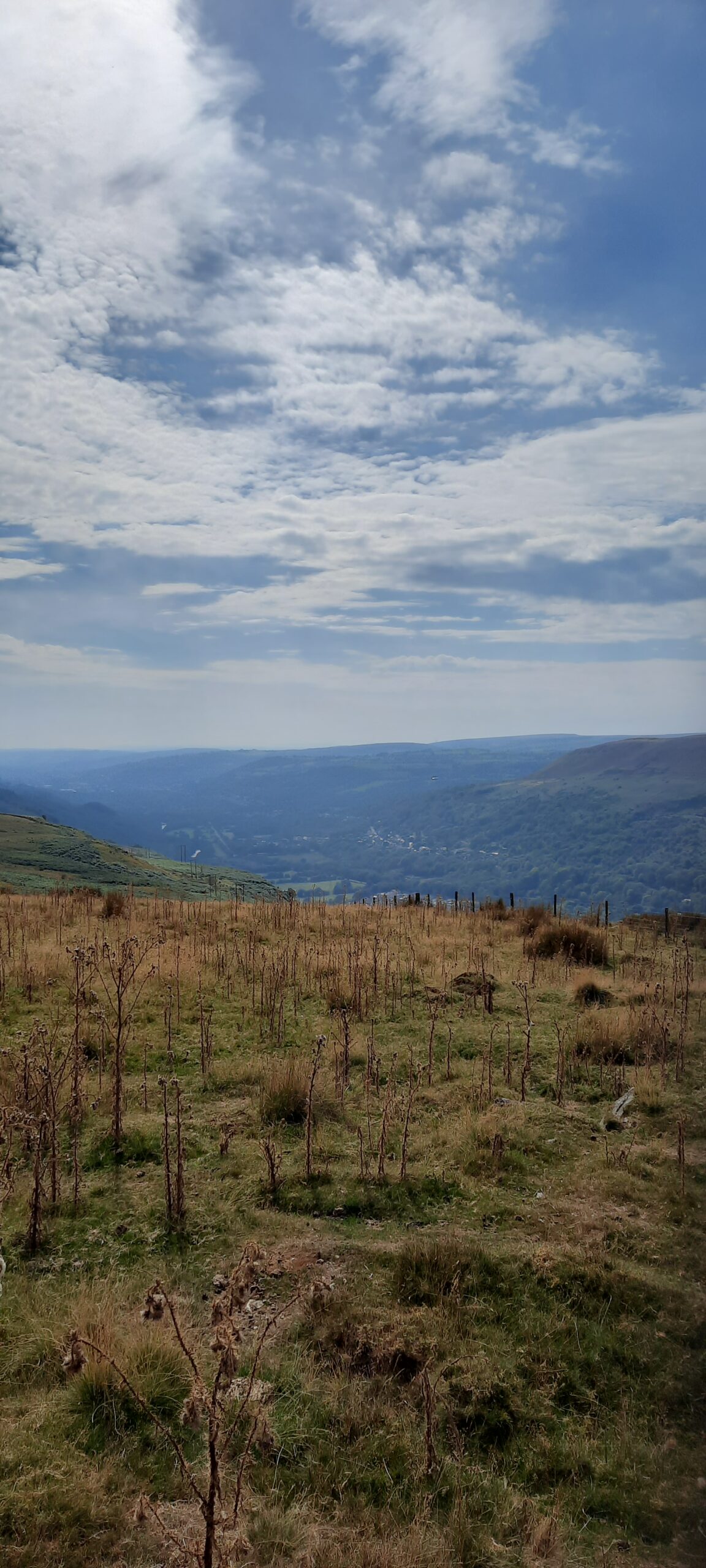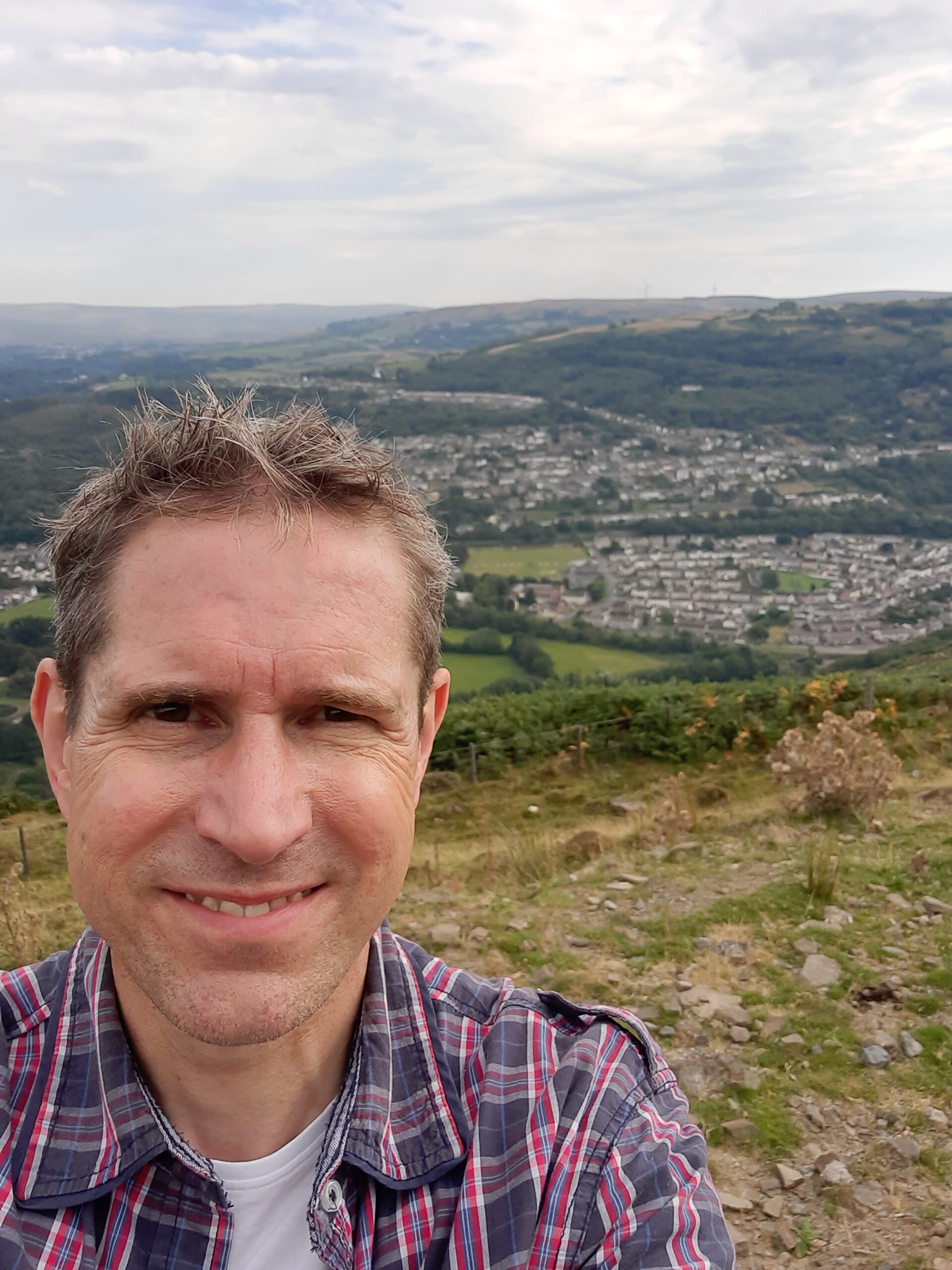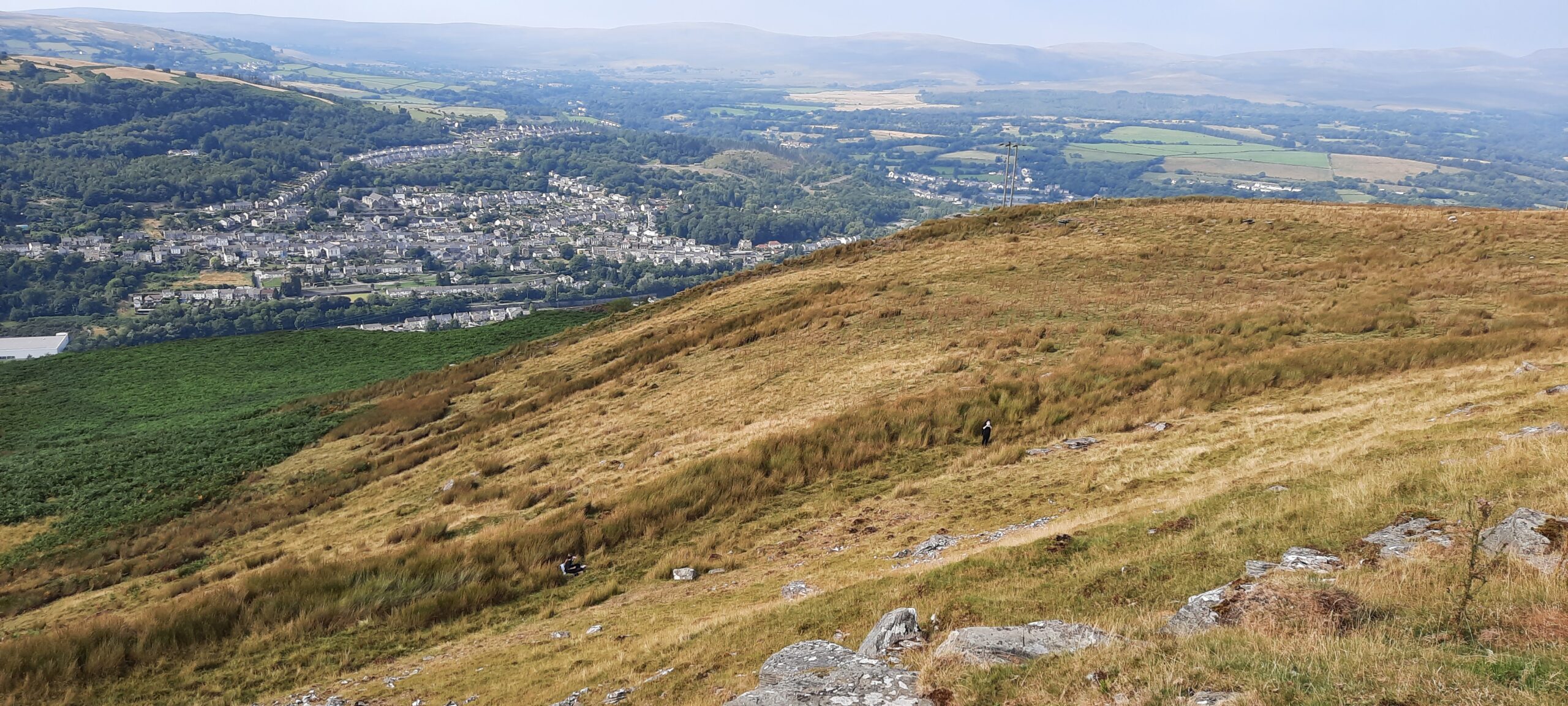Required
Nature, Fun and Walking in Wales – Hypnotherapy in Ely and Newmarket
Nature, Fun and Walking in Wales – Hypnotherapy in Ely and Newmarket
The summer holidays are slowly drawing to a close in the Regan household, and the kids will soon be heading back into the routine of the familiar school hustle and bustle. Alongside seeing clients and keeping up with my bootcamps, we’ve had some quieter days and some busier ones, some good news and some more challenging family news. In short, there’s been the usual, full whirlwind of things going on (and let’s all take a moment to remember the heatwave of 2022!).
Alongside all the daily business, we all headed off to Wales for a week of holiday near the (easy to pronounce if you are welsh) Ystradgynlais. One of my favourite things about our trips to Wales is listening to my wife and kids try to pronounce Welsh place names, a bit of fun that never gets tired!
We were staying in an isolated little house, alongside the river, and in a very peaceful location at the foot of a hill (or a mountain if you live in the Fens). It was lovely just sitting and watching the birds flying along the river and listening to the sound of the water meandering along.
All in all, it was a wonderful, positive time away from home. As well as simply being away somewhere new (with new novelty and stimulation) and time off the business of work, there are definitely other things that can contribute to enjoying a meaningful and beneficial break and that you can deliberately employ if you want to boost your mental health and well-being and get the full rewards of being on holiday (and as a bit of a spoiler, these things will also benefit your mental health even when you aren’t on holiday).
Time In Nature
One of the biggest boosts from where we stayed was that it was surrounded by nature. There was the river running a stone’s throw from the house, with a heron who patrolled the waterway and lots of smaller birds moving from place to place. There was the lush green grass in the garden (in contrast to the scorched yellow grass from the heatwave back here). A field mouse would dart around in the grass, birds were singing and squirrels were scampering around in the trees.
A short walk away from the house there was a nature reserve which was fab to explore and on the other side, the hill meandered way, way up above the towns. It must have been a mile or so upwards to get anywhere near the top on our walks. And maybe it’s because I’m welsh but I love standing up on a hill, with the breeze cooling me down, enjoying the tranquility and looking down at the houses and roads below. Walking through the trees and enjoying reaching the summit of a hill are two of the most enjoyable things to do.
I’ve covered several times about how time in nature can help you to reduce your stress and to boost your mental health and well-being.
Research has demonstrated that taking a ‘nature pill’, that is spending time in nature, can produce significant benefits in reducing stress. The greatest benefits seem to come from spending between twenty and thirty minutes in an outdoor place that has a sense of contact with nature (Hunter, Gillespie and Chen. 2019). There’s a bit more on that here: Using Nature To Reduce Stress and Boost Mental Health
And in another research paper, it was found that as little as 10-20 minutes of sitting or walking in nature could meaningfully help reduce stress, anger and anxiety, as well as helping boost comfort, calmness and positivity (Meredith et al, 2020). There more on this mental health research here: Using Nature To Positively Impact Your Mental Health
As well as all this good stuff supporting the usefulness and impact of time in nature for your mental health and well-being, we also have research that shows that nature helped with mitigating some of the adverse mental health impacts of the pandemic. Yep, even during a time of stress, change and uncertainty, nature was one way to support your own mental health and to help reduce anxiety and stress. This perhaps suggests that if things are a bit stressful or challenging for you in some way, then nature can contribute to helping you to cope.
The frequency of green space use and the existence of green window views from within the home were associated with increased levels of self-esteem, life satisfaction, and subjective happiness as well as decreased levels of depression, anxiety, and loneliness (Soga, Evans, Tsuchiya, and Fukano. 2020). I covered that research in this previous article: Reduce Anxiety and Stress With Nature During The Pandemic
If you want to reduce your stress and anxiety, and to boost your well-being and sense of positivity, then adding time in nature to your routine is a good option for your mental health.
Better still, why not combine time in nature with being physically active, something that has also been strongly associated with supporting your mental health and well-being?
Being Physically Active
I know some people like to sit and do nothing on holiday, and others enjoy eating and drinking more than they usually would. However, for me, the thing I love on holiday is getting up and getting out and being active.
Each day we were away I went out for a run to explore the local area, sometimes around the streets and into the High Street, sometimes exploring the paths and parks of the area. I love getting out and taking a good look around and finding new interesting sights and things of note (like the old iron works and an aquaduct near where we were staying). Whatever else we do the rest of each day on holiday, I feel more relaxed and positive as a result of being physically active (and usually I was back before the rest of them were up!). Certainly my favourite runs on this holiday were the ones around the paths of the nearby nature reserve, within sight of the river, moving uphill and surrounded by the trees, plants and wildlife.
Being physically active in nature can certainly support your mental health. Grassini (2022) carried out a systematic review and meta-analysis of a nature walk as an intervention for anxiety and depression.
The research found that using nature walks can help improve the symptoms of anxiety and depression, and walking in nature produced a better mental health impact than walking in an urban setting, suggesting that the aspect of being close to nature is important for mental health. Walking in nature was more beneficial than experiencing nature without walking, suggesting that movement is also important here in achieving the most benefit (covered in this article: The Effectiveness of Walking in Nature For Anxiety and Depression).
So you don’t have to just take my own experience as evidence, here we have the support for the value of getting out and walking in nature for helping with anxiety and depression. And there is a mass of research and evidence supporting the benefit of exercise for anxiety relief and for boosting your mental health and well-being. You can find more about the benefits of exercise here: Anxiety and Exercise – Anxiety Hypnotherapy in Ely and Depression: Does aerobic exercise have anti-depressant effects?
Logging Off and Switching Off
Research also tells us that having a break from social media can be good for our mental health and well-being. I think we can all easily become too attached to social media and the like. We may check it many times a day, find that we lose ourselves in it, and sometimes you may get angry, frustrated or worried by what appears in your feed. Rather than being a tool to aid communication and information, social media can all too readily become something that sucks the time and productivity out of your day.
When on holiday, the need to check social media should reduce. You are busily engaged in other things and activities, or just enjoying the peace and your surroundings. As well as enjoying being in nature and exploring new things, spending less time online meant I managed to read a novel in three days. A client recently told me about her trip to Whitby, which reminded me that it had some vague link with Dracula, so I decided that was to be my book of choice (and even the flapping of bats outside each night didn’t disturb my sleep!).
There is some evidence that links social media use to an increased likelihood of depression and reduced well-being. And because the content and information you engage in drives what appears in future, it is possible to enter into a loop where you are fed more and more of the same that strengthens any negative adverse thoughts and feelings. Any sense of low self-worth, lowness or excessive worry can be exacerbated by the information that is filtered our way and by any need for external validation (through views and likes at so on).
And if you have a tendency for doomscrolling, then can exacerbate anxiety and have a detrimental effect upon your mental health too. There’s more on doomscrolling, social media and smartphone use in this earlier article: Doomscrolling, Anxiety & Your Mental Health
Science also supports the benefits of taking a break from social media. Lambert et al (2022), carried out a study to understand the effects of a one week break from social media (Facebook, Instagram, Twitter, and TikTok) on well-being, depression, and anxiety compared with using social media as usual. The results showed that asking people to stop using social media for a week led to significant improvements in well-being, depression, and anxiety. I covered this topic here: Could A Social Media Break Help Your Mental Health, Depression and Anxiety?
This study adds to the evidence that suggests that short breaks in social media can positively impact upon your mental health. Whilst it would make sense to apply this into everyday life, it certainly can benefit you to apply it to your holiday if you truly want to get the most out of having some quality time away, relaxing and recharging.
Nature, Fun and Walking
Now, my idea of a great holiday may not be the same as yours. But, of course, whilst these things made for a fantastic family holiday, they also form a large part of how to take care of your mental health on a more routine, everyday basis.
All of the research and evidence suggests that spending time in nature, being physically active and taking time away from social media can all contribute to supporting your good mental health. So it makes sense to have a think about how you can benefit from incorporating these things into your daily or weekly schedule. Whilst sometimes we all need a little more for our mental health and to deal with challenges in life, these simple things can easily form part of the foundations. And, for not much time or effort at all, wouldn’t it make sense to make them consistently happen and to enjoy the likely positive benefits?
To your health and happiness,
Dan Regan
Hypnotherapy in Ely & Newmarket
Struggling with anxiety, fears and phobias and need some help? Find out how I can help with a Complimentary Hypnotherapy Strategy Session. Learn more here: Appointments
Find out what dozens of other people have said after their hypnotherapy sessions with Dan: Hypnotherapy Testimonials
And check out these powerful hypnosis downloads that can start helping you right away with anxiety, confidence and more: Hypnosis Downloads
Get Your Copy Right Now…
Subscribe to Dan’s Digest filled with tips, strategies and techniques and get instant access to your free rapid relaxation hypnosis audio track.
Enjoy feeling and being more mentally calm and physically relaxed right now:







0 Comments